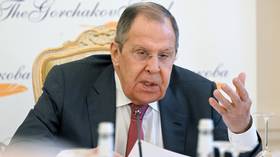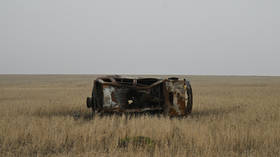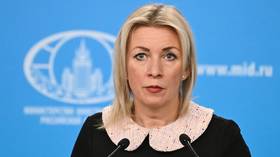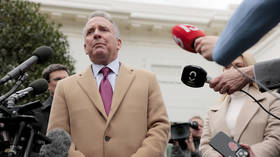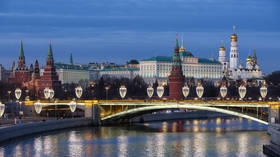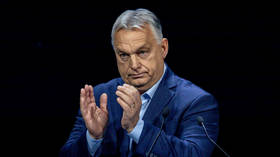Cameron responsible for ‘erroneous’ UK strategy in Libya, leading to rise of ISIS - MPs report
The UK strategy in Libya was based on erroneous facts, and the operation to protect civilians turned into “regime change by military means,” a report by UK Foreign Affairs Select Committee said, adding that ex-PM David Cameron is “ultimately responsible.”
The report dubbed “Libya: Examination of intervention and collapse and the United Kingdom’s future policy options” was released on Wednesday.
“In March 2011, the United Kingdom and France, with the support of the United States, led the international community to support an intervention in Libya to protect civilians from attacks by forces loyal to Muammar Gaddafi,” the report stated.
However, this policy was not informed “by accurate intelligence” and a limited intervention “to protect civilians drifted into a policy of regime change by military means.”
“UK strategy was founded on erroneous assumptions and an incomplete understanding of the evidence.”
“The [UK] Government failed to identify that the threat to civilians was overstated and that the rebels included a significant Islamist element,” the report says.
The document states that the UK policy was “not underpinned by a strategy to support and shape post-Gaddafi Libya.”
Intense Battle: Chaotic fight between govt forces and #ISIS in Sirte, Libya https://t.co/hT56l7ewUhpic.twitter.com/2jmxC7GcPY
— RT (@RT_com) September 6, 2016
The result of that policy was “political and economic collapse, inter-militia and inter-tribal warfare, humanitarian and migrant crises, widespread human rights violations, the spread of Gaddafi regime weapons across the region and the growth of ISIL [Islamic State, also known as IS, ISIS] in North Africa,” according to the document.
Former Prime Minister David Cameron was “ultimately responsible” for the failure to develop a “coherent strategy” in Libya, the report states.
The document places the blame for the failed Libya policy not only on the UK, but also France, which had its motives for the military intervention in the war-torn country.
The plans of then-President Nicolas Sarkozy were driven by “a desire to gain a greater share of Libya oil production, increase French influence in North Africa… and provide the French military with an opportunity to reassert its position in the world,” the document stated.
Royal Navy targets Libya gun runners & people smugglers https://t.co/uoKg129jO6pic.twitter.com/NMEOuXH9Sz
— RT (@RT_com) September 2, 2016
The third role in the military intervention in Libya belonged to the US, according to the document. London and Paris seemed to be influencing Washington to support Resolution 1973, a measure adopted to justify the operation in Libya.
“In practice, this led to the imposition of a ‘no-drive zone’ and the assumed authority to attack the entire Libyan Government command and communications network.”
One more important issue in the report was the post-war spread of Libyan weapons. According to the panel, Libya “purchased some £30 billion ($39 billion) of weapons and ammunition between 1969 and 2010.” However, the majority of these weapons fell into the hands of militias and terrorists after Gaddafi was killed.
“The international community’s inability to secure weapons abandoned by the Gaddafi regime fueled instability in Libya and enabled and increased terrorism across North and West Africa and the Middle East.”
Further political immobility in the region led to development of terrorist groups, including Islamic State (IS, formerly ISIS/ISIL)
“While defeating all manifestations of violent extremism should remain a UK government priority, the primary objective in Libya should be to support a central authority that can deliver greater stability, address the root causes of extremism and act as an effective partner in the common struggle against militant groups.”
Libya has been struggling to regain political stability since a 2011 uprising that led to the ouster of the country’s longtime dictator, Muammar Gaddafi, and rival powers and militias have been fighting for control over the country ever since. In December of 2015, a UN-brokered Government of National Accord and a Presidency Council were created in an attempt to return stability and peace to the country.
Yet it has been difficult for the fledgling Tripoli-based government to assert authority over the country, which is still home to a number of rival factions that oppose it.



